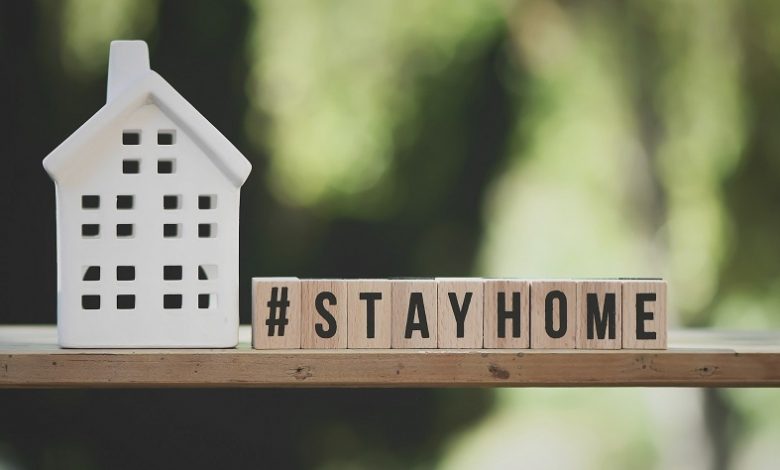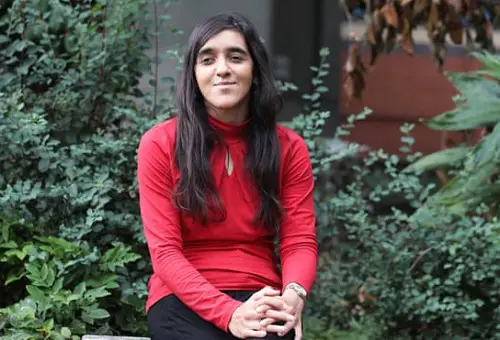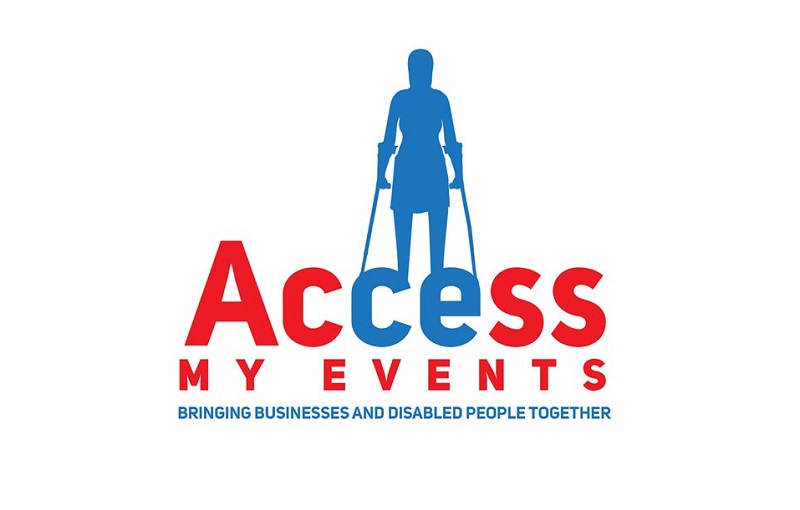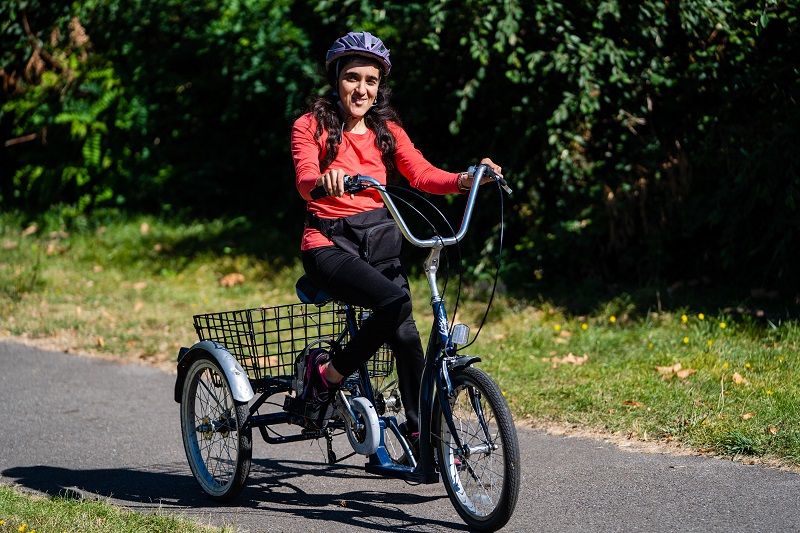
How I’m keeping healthy and happy during the Covid-19 lockdown
Our writer and team member, Zubee Kibria, who has cerebral palsy, shares her experiences of lockdown. Her disability means that she needs to keep her fitness up and her work in events has also been affected. But she’s come up with a plan and new ways of doing things. Here, Zubee explains how, despite the challenges, she is keeping positive during isolation.
As a disabled person, getting out and about independently can be frustrating due to barriers. But I do so as much as possible because of my cerebral palsy – keeping moving keeps me supple.
I’ve also experienced over protectiveness from my family because of my disability. They mean well and I do understand their concerns. But, as an adult, their restrictions defeat the whole purpose of independence.
With the coronavirus outbreak, it’s made them even more cautious and resistant to me going out, so I’m pretty much fully self-isolating.
That’s not easy in itself for a number of reasons. We have a full household of seven adults, and everyone is working from home. That brings its own challenges, particularly as we all share a room apart from my brother. But I have had to adapt to make the best of the situation.
Also, as someone who works on events, I love interacting with people and keeping busy. That, combined with the idea of not being able to exercise, meant that facing weeks of self-isolation really tested me.
In order to try and keep positive in these tough times, I needed to find things to do to keep myself busy as I get bored easily. You could say, I am like a kid that needs to be entertained 😊

My business during Covid-19
Last year I launched the brand for my own events company called Access My Events. It is a unique business designed to give disabled people an opportunity to attend accessible events in the UK.
Obviously, right now, gatherings and events are on hold. When coronavirus first came to the UK, I started questioning whether I should continue progressing my business with so much uncertainty.
But with the initial momentum, I didn’t want to wait to progress it onto the next stage, especially now that I had a brand and logo.

So I thought about what I could do from home that would mean I was still making some progress. The first was networking.
In any business, who you know is just as important as what you know. So I have started making connections with people in the relevant industries and getting my name and business out there.
Next, I am starting to work on building my own website. It feels a bit like building a house. It’s really exciting.
In many ways, now is the perfect time to focus my energies on these two important areas. Had I been going out to events and to meet people – which can take longer if you’re disabled – I might not have been able to devote so much time to them.
You can read more about my business and what it was like setting up in an article I wrote for Disability Horizons last year – starting my own business helping disabled people access events. And if you want to get in contact with me, my company email address is zubee@accessmyevents.co.uk.
Voluntary work virtually
Volunteering is something I have done for many years, particularly with Disability Horizons.
Our team is spread across the UK and the world, so we have always worked virtually. It means that everything we do can carry on as before. The only difference is that we’re having more team get-togethers to keep us all smiling 🙂
One of the main things I do is look for new disabled writers, bloggers/vloggers and influencers that we can potentially work with. We want to reach and help more disabled readers, and assist disabled content creators in raising their profile and advancing their career.
We’re looking for people who span a range of disciplines and topics, including bloggers, disability rights advocates, social media sharers and vloggers/YouTubers from anywhere around the world.
So if you’re a blogger/vlogger or influencer reading this and are interested in being involved, we would love to hear from you! Email me on zubee@disabilityhorizons.com.
I also work with the content team to find disabled people with interesting stories to tell. I have interviewed dancers, photographers, models, entrepreneurs and celebrities. Here are a few examples:
- Model Alexandra Kutas
- Wheelchair dance champions
- Photographer Alessandro Capoccetti
- Disabled entrepreneur Josh Wintersgill
- Gardener’s World presenter Mark Lane
If anyone in the news is of interest to our readers, I will find a way to track down their contact details and approach them. This could be through their management/PR or direct through their website, or social media channels. 90% of the time I get a positive response.
Most of our interviews are conducted in the form of a Q&A over email – it makes it more accessible for both parties. I recently interviewed actor and director David Proud and blind photographer, Roesie Percy, which will be coming soon…
If anyone else is interested in writing or volunteering for Disability Horizons, email our Editor on liz@disabilityhorizons.com with some information on who you are and what you’re interested in doing.
At-home exercises during isolation
For many people, keeping active is important. But if you’re disabled, that adds its own challenges. Cerebral palsy causes stiffness in the muscles, so exercise can help greatly.

Before the coronavirus outbreak, I attended cycling sessions with Bikeworks’ All Ability Club every Friday and every other Saturday at Little Wormwood Scrubs Park.
I also went to the Kensington Leisure Centre, which runs a range of free activities for disabled people from Monday to Friday. I usually attended a 1-hour gym session on Mondays and rebound therapy (adapted trampolining) on Wednesdays.
With gyms being closed, I have tried to stay motivated and keep up with regular exercise.
I’ve been doing a few floor exercises, such as pelvic raises, palm to knee crunches and squats. I do these holding onto the bannister or chair as I can’t balance easily.
Leg stretches are really helpful too, but I do need assistance for it to benefit. I need someone to put their hand on my knee and lightly press down to help release it. Without this, my left knee doesn’t go down.
If no one is around to help, I sometimes use resistance bands to stretch, but it’s not as effective. I also use resistance bands to help build strength in my core and arms.
I do this using my Total Flex machine (more on this below), which has three levels of resistance. Sitting down, I hold the resistance bands and move my arms up and down in three sets of 15.
It’s essentially a shoulder press exercise. You could try it by looping different strength bands around something stable, such as a bannister.
Total Flex exercise machine
I’ve had an all-in-one gym machine for a few years, but it’s really come in hand now. I use it to help me keep active using resistance bands. You can watch a video of the Total Flex to see it in action.
A lot of the workouts can be done sitting down, as you can see from the video, so it’s great if you find balancing difficult. If I didn’t have this equipment, I don’t know what I would have done. It’s one of the best things I have ever bought.
Bikeworks pilot and 2.6 Challenge
Bikeworks recently did a pilot to see if it could run 1-hour sessions for its regular members as the local park it uses is open.
Thankfully, I was able to persuade my family that it was okay for me to attend! We each rode one at a time and kept our distance from the staff and anyone else in the park.
Thanks to Bikeworks, I was to be able to get out of the house and get some fresh air after four weeks of being indoors.
On 24th April, I also took part in a 2.6 challenge to raise money for UK charities, many of whom are losing money due to this pandemic.
With only two day’s notice, I had to get prepared to do the challenge. At that point, I had not cycled for a while. Plus, it was the start of the Muslim holy month of Ramadan (more on this below). But I was defiantly up for it as it was for a good cause.
Thanks to Bikeworks, I was able to get out again, but this time making a difference for my chosen charity, Disability Rights UK.
Along with someone I paired with, we completed 13 laps of Little Wormwood Scrubs Park. So far, we’ve raised £90! If anyone would still like to donate, please visit our Just Giving page.
Ramadan Fundraising Challenge
For Muslims around the world, the holy month of Ramadan started on 24th April. For the first time, Ramadan will be different due to coronavirus, with mosques being closed and family and social gatherings not permitted.
Ramadan is the month of fasting for 30 days. During this time, Muslims will not eat or drink from sunrise until sunset. We will also abstain from sexual activity or using any form of bad language.
It is a time of spiritual reflection, self-improvement, heightened devotion of worship, reading the holy book, (Quran), increased acts of giving to charity and doing good deeds.
Before sunrise, we would have breakfast, (known as Seri) and another meal, (know as Iftari) after sunset. At the end of the fast, when the sun has gone down, families and friends usually get together for an Iftari to break their fast.
Doing Ramadan in lockdown is not the same as we are unable to socialise with friends and family. But I want to stay motivated, and inspire others too.
I’m, therefore, challenging non–Muslims to join me in fasting for one day or more to help raise money for my chosen charity, Penny Appeal.
Please let me know if you’d like to take part by emailing me (zubee@accessmyevents.co.uk) with the words “challenge accepted.” It would be great to have a number of people participate to make it more exciting and mean that we’re in it together!
I would also love for participants to share their experiences in a short video or by writing a short piece that I can share on my social media channels and website.
If you would simply like to donate, please do so on my Just Giving page. Any amount received will be greatly appreciated!
By Zubee Kibria
More on Disability Horizons…
- 5 things I want others to know about disability
- How one disabled travel blogger is coping with self-isolation
- Covid-19 and self-isolation: time for you to discover your true self
- Deaf volunteer and filmmaker changes attitudes on deafness in Kenya
Originally posted on 15/05/2020 @ 2:16 pm